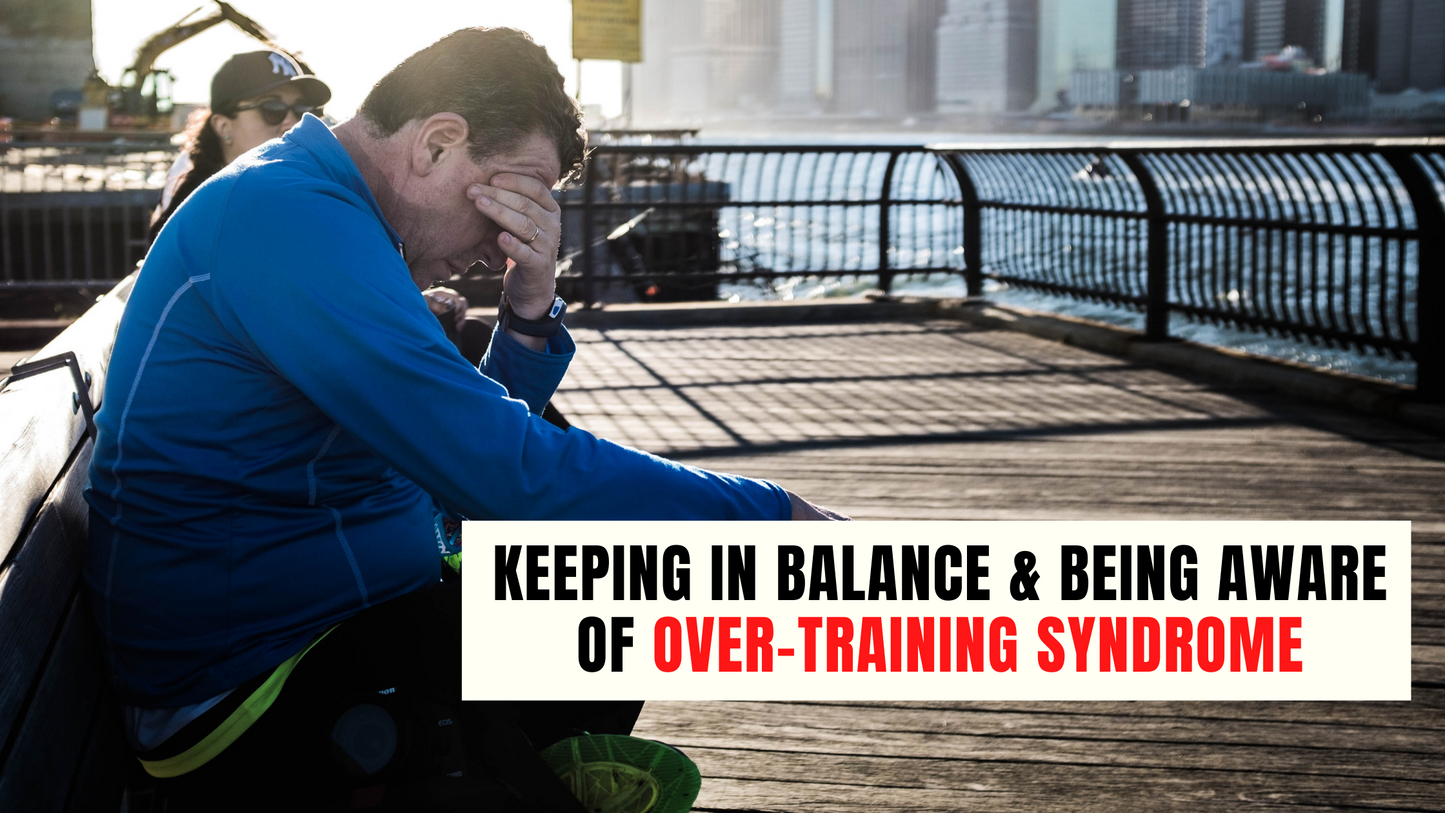Part 1 of our stress newsletter was so packed full of information we decided to split it into two parts and bring you a section dedicated to keeping in balance with a nod to over training syndrome
Let's start with homeostasis and allostasis...
These phrases are really just fancy ways of saying stress + recovery = adaptation. The body always wants to get back into balance (homeostasis). The cool things about human adaptation is the right stimulus results in an increased baseline. You return to a higher potential homeostasis! With the right rest, nutrients and recovery protocols of course!
This gives rise to a phrase of the stress cup or allostatic load. This is the combined load of all real or perceived stressors.
A good activity I use with clients is to ask them to list all their stressors and replenishers. These can be habits that restore and habits, actions and situations which deplete. You create a sort of stress see-saw or even allostatic cup list. See below for my examples of a stress cup.
Sleep is crucial for brain health, we consolidate memories, pay down new synapses and neurons and clean up debris which accumulates during the day. Also, lack of rest increases cortisol levels, chronically raising them if not addressed with sufficient rest and recuperation.
Chronic stress has a highly negative effect on the brain, learning, depression and behaviour. Elevated long-term cortisol can even shrink the brain’s prefrontal cortex. Short-term stress is stimulating and helps the brain.
Short-term stress associated with high-intensity training also helps brain health and brain volume over time. Doing it keeps the brain healthy and strong.
Good things for the brain
Stimulus + learning new tasks and skills
- Relaxation
- Interaction
- Good fats
- B-vitamins + other essential nutrients
- Nootropics
- Vitamin D / Sunshine
- Sleep
- Practice and making mistakes
- Goals
- Fitness
- Clean food, air and water
Bad things for the brain
Lack of stimulus
- Stress
- Isolation and lack of interaction
- Bad fats
- Lack of good nutrients, b-vitamins and other essential nutrients
- Lack of vitamin D / sunshine
- Lack of goals
- Toxins + processed food
STRESS SUMMARY
In terms of changing the way you think to protect brain function the fundamental way to begin doing this is to limit the amount of time you allow the reptilian brain to engage you into stressful outcomes. The part of the brain is basic. It responds to stress quickly and often aggressively although it can also incur a flight or freeze response.
The conscious ‘higher brain’ controls most of these functions, but if a stressor bypasses this then we get an instant ‘hit’ of stress hormones. In terms of longevity, this is fine, as long as you quickly go back to ‘stasis’ or equilibrium. If you stay switched into the stress response, damage can occur – damage to neurons and perhaps more importantly the ability to repair these vital neurons can’t work efficiently in a stressed state.
A relaxed brain repairs and learns much more efficiently
My cat once had the most awful of all fights, I saw it. She made her way back afterward – home and within a few minutes was complete at rest, scarred and bleeding but purring and safe. Any human would normally have been switched on for days afterward. We need to take a leaf from the cat’s book and switch it on and off as we need. The mindfulness techniques of the ancient samurai are a great place to start, daily readiness for death meant daily preparation for death, after all in a death-ready state – what do you have left to lose?
Their practice of meditation often occurred at night, they’d imagine all their friends burying them saying goodbye – lying in their grave dead – after a series of mindful breathing techniques which to be fair they have known since they were able to speak.
The quicker we can incur a relaxation response after a stressful event the more we can stay in stasis and only switch onto stress when we need to – the more we nourish our hearts, brains and systems with the right nutrients the better able we will be to mount successful and aggressive stress responses and then be asleep by the fire with our loved ones afterward – with no worries in the world (until we need them next) the better we will age and the better we will function.
STRESS CUP
Perhaps one of the simplest ways to assess training versus recovery is the stress cup. This is a bit like going to the bank manager and writing down a list of all your income versus expenditure.
Expenditure is everything that depletes. Income is everything that restores.
You can write your own list down, here’s mine;
RESTORERS
- Sleep
- Exercise
- Good Food + family + friends
- Supplements
- Laughter
- Play
- Challenging goals and accomplishing them
- Massage
- Sex
- Siestas
- Good films
DEPLETION
- Too much exercise
- Poor sleep
- Stressy people
- Shit food
- Lack of laughter
- Doing too much and stretching energy thin
OVERTRAINING AS A SOURCE OF STRESS
This will lead into an overtraining chapter, then inflammation, fatigue and oxidative stress…..
My take on overtraining. Read the additional articles if this is an area that affects you, your family or your clients.
Over Training + fatigue
In order to improve you have to induce stress. The super-compensation model is well understood. Pushing hard is what makes people stronger and better athletes, humans, people. We all need stress to survive, adapt and respond to our environment.
Training stress like other stressors induces similar effects on the nervous system. In addition to these effects, other systems can become disrupted and require rest and restoration to normalise and become more robust.
As with general fatigue states – which also apply to the over-training model, many systems can become disrupted at once. Obviously, there’s wear and tear involved in using the body, the drive to do some is central from the brain and nervous system.
Stress hormones are released primarily from the adrenals and pituitary. The immune and digestive systems can become dysregulated leading to suppressed function, leaky gut and IBS-type symptoms. Depression, listlessness and lack of drive often prevent, with of course the tell tale signs of failure, for sufficient adaptation.
The thyroid will also generally slow as a secondary effect to adrenal insufficiency. All the while inflammation can become dysregulated and chronic. Of course, sleep patterns become disrupted – furthering a downward spiral.
Training too hard for too long without adequate replenishment and repair can also deplete essential nutrients, which then add to the total burden and symptom patterns listed above. Occasionally toxicity presents itself such as zinc toxicity which has all the same symptoms as adrenal insufficiency and OTS. All other factors which can present in CFS and fibromyalgia must also be considered.
Mitochondrial function, particularly in the older athlete needs to be considered. Environmental contaminants and heavy metal toxicity, moulds, plastics and toxin exposure are also ruled out. Food intolerances are worsened and can increase or be the root cause of an energy depletion and afterward overtraining situation.
Mastering both the art of relaxation and the general optimum replenishment factors outlined above are essential items for both recreational and elite performers. Having read extensively on this subject, frequently borderline and occasionally gone in OTS myself and helped 100’s of individuals and athletes recover from this state – I’m confident you will find ways to improve your recovery and prevent this from happening to yourself or your clients, friends and loved ones.
Always remember if you train too hard, too frequently without sufficient recovery you too could begin to present with the symptoms outlined above.
ROAD TO RECOVERY
- Plan Training and Recovery Properly
- Fix Sleep
- Monitor Recovery status and adaptive capacity
- Maintain optimum energy balance, nutrient balance and protein balance for your goals
- Support digestive function
- Support brain function
- Support inflammatory processes
- Rule out ancillary cofactors
- Monitor your stress load pay into your replenishment processes frequently
- Practice techniques to maintain a positive emotional state.






